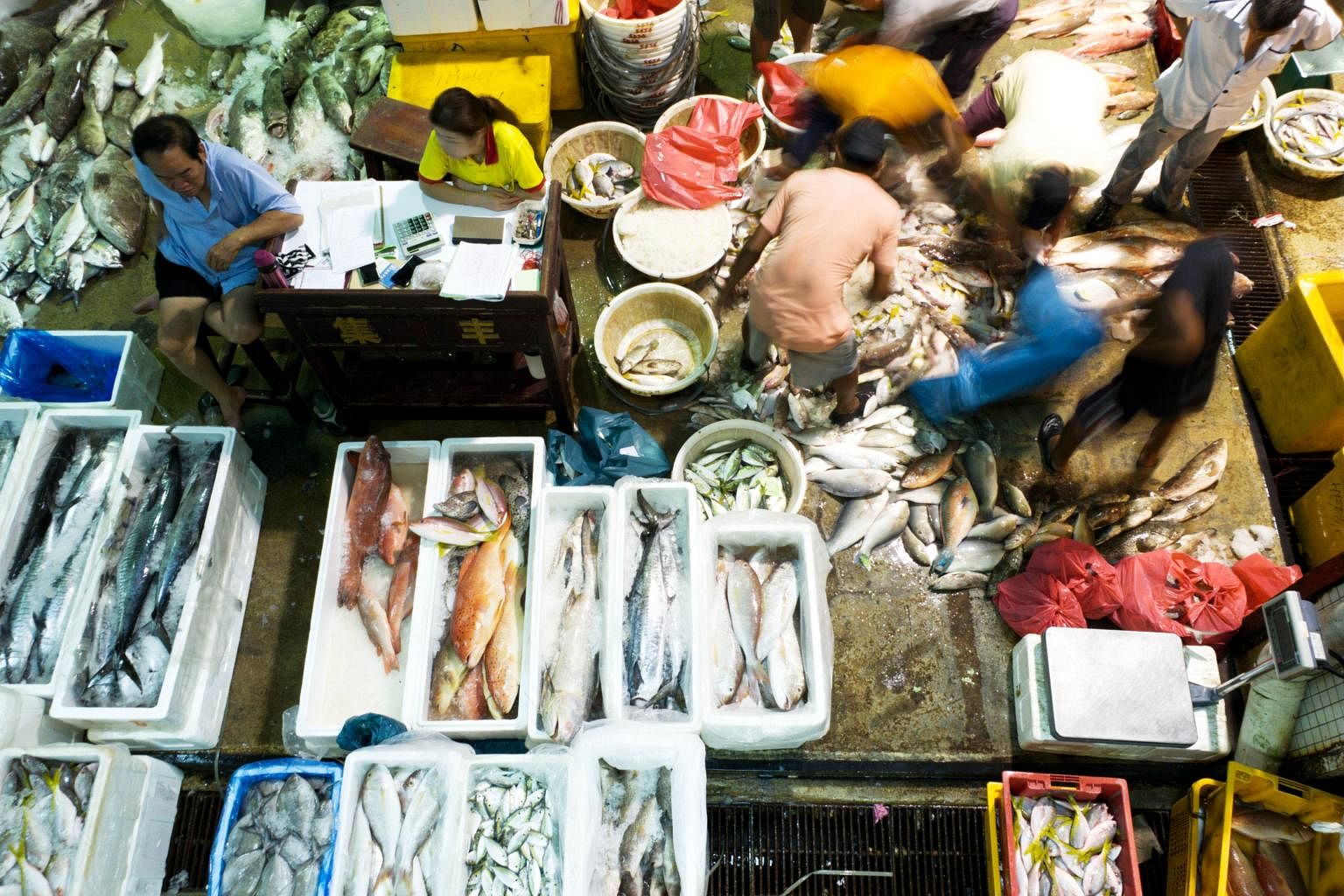Plan launched to guide wholesale trade SMEs through digital transformation
Sign up now: Get ST's newsletters delivered to your inbox

The platform will offer Singapore seafood merchants greater access to overseas markets and facilitate economies of scale through shared services.
PHOTO: LIANHE ZAOBAO
Ng Jun Sen
Follow topic:
SINGAPORE - Help is on the way for small and medium enterprises (SMEs) facing the perennial issue of not knowing how to kick start their digital transformation.
The initiative is in the form of a new industry digital plan that targets around 33,000 SMEs in the wholesale trade sector.
The sector includes firms that import and export food and beverage and those in electronics and machinery.
The plan was outlined by Senior Minister of State for Trade and Industry Koh Poh Koon on Monday (Nov 26) during a visit to distributor SATS BRF Food.
It consists of a step-by-step guide for SMEs, charting the type of digital solutions that firms can pick up in order to thrive in a global industry that has seen the rise of digital marketplaces for business-to-business transactions and blockchain technology in trade processes.
Digital solutions are recommended based on the particular firm's growth. Examples range from sales and inventory management software to help streamline operations, to using artificial intelligence to predict sales trends and automate sourcing and purchasing needs.
Firms can also tap the Infocomm Media Development Authority's SME Digital Tech Hub and Enterprise Singapore's SME Centres to assess how ready they are for digital transformation.
These facilities can deliver a comprehensive business diagnosis and advice on digital solutions, said both agencies in a joint statement.
"Just imagine going to your general practitioner to have your first diagnosis. Once you know where your problem lies, you know what you want to do, then this is when you look for available solutions," said Dr Koh, who is also a colorectal surgeon.
The wholesale trade industry accounts for about 16 per cent of Singapore's economy and hires around 320,000 people. It has also been identified as one of the growth sectors that can absorb displaced workers from other industries hit by technological disruption.
Besides helping businesses transform, Dr Koh said training workers is more critical.
That imperative was behind the launch two weeks ago of a new skills framework for the wholesale trade industry that mapped out the skills needed for workers, said Dr Koh, who is also the deputy secretary-general of the National Trades Union Congress.
SATS BRF deputy general manager Andre Menezes said his most significant challenge over the past year was to overcome the fears and anxieties of his staff towards technology.
Transport supervisor Thavabala Krishnan, 57, who now uses a phone app to automate filing delivery documents at the firm, said he first began using the app with some trepidation.
But his fears have dissipated, as he realises the app can reduce the time he spends on paperwork by 95 per cent.
Likewise, the fish trade can also do with cutting down on these laborious paper processes that still dominate the traditional industry, said Punggol Fish Merchants Association chairman Daniel Pe.
His association, together with the Seafood Industries Association Singapore, Singapore Fish Merchants' General Association and technology platform solution provider vCargo Cloud, inked a Memorandum of Understanding to establish the first seafood B2B e-marketplace in Singapore. The platform is slated to be out by March next year.
"The main challenge right now is convincing the older generation to accept digitalisation. This trade has been around for more than 60 years and the first generation of fish merchants are in their 60s or 70s, and we face resistance on whether it is going to work or not," said Mr Pe, who was speaking on the sidelines of Dr Koh's visit.
"It is about convincing them, that we will be hand-in-hand for this whole project to convince them to come on board."

